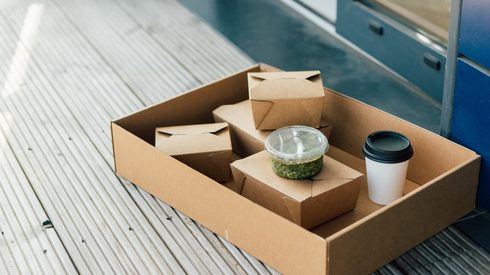Klabin remains firm on its strategy to become a globally competitive producer of packaging paper with vertically integrated planted forests, company chief executive officer Cristiano Teixeira told investors on November 30.
According to the executive, the two new paper machines (PMs) the company has started up since 2021 have added almost 1 million tonnes per year of capacity, and those machines are operating at a very low cash cost. Meanwhile, its acquisitions of corrugated board plants have boosted its conversion capacity.
“These two PMs are not only state-of-the-art in technology but will also sustain for the next 20 years the lowest cash cost in the world,” Teixeira said during the Klabin Investor Day event held in São Paulo.
Increased integration and flexible capacity
The company’s PM No27, which started up in 2021, was the first in the world to produce kraftliner made from 100% eucalyptus fiber. The equipment has a designed capacity of 450,000 tonnes per year of lightweight virgin fiber kraftliner, 70% of which is currently integrated into Klabin’s own corrugated box facilities, the company said.
In the past year, the company has undertaken a strategy of increased integration between its paper mills and packaging plants in order to tackle low international demand, which Teixeira said resulted from a much more challenging macroeconomic scenario.
“The acquisitions that the company also made to integrate more paper were fundamental in this process, as we increased market share. This had a direct effect on corrugated paper prices that have been keeping a stable level above $1,100 per tonne in the past six years,” he said.
As for PM No28, which started up in June and has a flexible capacity that can shift from kraftliner to white boxboard, Teixeira said that its focus is on trending markets such as beer and milk.
“This is a machine that also reaches the market, substituting high-cost production [from other countries],” Teixeira said. “There are also several regions in the world, including Asia and Africa, that still have a low consumption rate for packed milk, for example.”
According to the CEO, annual global boxboard demand totals around 50 million tonnes, most of which is focused on folding boxboard, a type of paper that is not used for refrigerated products and is traded as a commodity.
“We don’t act a lot in this market. We are serving the liquid packaging paper market, the beer sector [with carrier board], and there are new segments appearing [that are] using this paper, such as protein drinks. [Meanwhile,] other frozen products also need our product that has resistance to humidity. We only sell boxboard in the high-end markets, so we are not facing issues with the competition of imported products,” Teixeira stated.
Recycled paper solution investments
But the company has not ruled out future moves involving recycled paper, he said, forecasting that global demand for packaging will continue to focus more on recycled paper solutions.
“This potential of adding a recycled PM in the future will increase ROIC [return on capital invested] dramatically. First, we are stablishing our presence with virgin fiber, as Brazil and the US are the countries with the most potential for this kind of production. But we know that 80% of boxes will continue to demand recycled paper, so Klabin will also have a share in this market,” the CEO said.
When asked about the timeframe for investments in recycled paper, Teixeira explained that the company is considering its Figueira project — a new corrugated board plant in the city of Piracicaba, in São Paulo state — as a possible location for two new recycled PMs with a combined capacity of 900,000 tonnes per year.
The Figueira project should start its first phase of production in the second quarter of 2024, with capacity to produce 240,000 tonnes of corrugated board. Because Klabin plans to balance its output with potential closures at existing facilities, the net capacity increase from this project should be 100,000 tonnes per year, Teixeira said.
“Recycled paper has always been and will continue to be an important part of our business. In our view, the world tends to increase the share of recycled paper… and the investment in new PMs can take place when the market shows the correct conditions, allowing us to release our virgin paper to serve more international markets,” Teixeira said.
This article was taken from PPI Latin America, our newsletter for pulp, paper and packaging market news and prices for Latin America. Speak to our team to learn more about our news and market analysis, prices, forecast and more.






